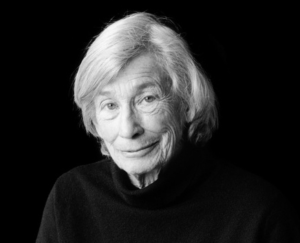The BEST: “What Gorgeous Thing”

Summary: Mary Oliver (1935-2019) spent much of her life in quiet isolation in the Cape Cod area of Massachusetts. Her days were filled with purposeful wandering, enjoying the less observed moments of nature. Throughout her lifetime, her poetry was criticized for its simplicity, but it allows for the unassuming beauty of the natural world to take hold of her readers. In her poetry lies a keen awareness that worship of God is not found in a singular path but does start in a mindfulness of where one finds oneself.
Oliver’s poem, “What Gorgeous Thing” (published in her 2014 collection Blue Horses) articulates the power of awareness.
I do not know what gorgeous thing
the bluebird keeps saying,
his voice easing out of his throat,
beak, body into the pink air
of the early morning. I like it
whatever it is. Sometimes
it seems the only thing in the world
that is without dark thoughts.
Sometimes it seems the only thing
in the world that is without
questions that can’t and probably
never will be answered, the
only thing that is entirely content
with the pink, then clear white
morning and, gratefully, says so.
Why this is “THE BEST”: Central to Oliver’s work is the idea that observing the beauty of the world leads to an awareness of divine presence. Whether there is a singular God, or a system of gods, Oliver sees worship as a multiplicity. Be it through a gesture of good, a poem, or a hike, each avenue is equal to Oliver.
Her particular form of religious experience arises through pausing and observing the splendors of our world, being an equal in the action just by watching. While observing the world will not suddenly rid it of its many “dark thoughts,” it will help you to not be consumed by the darkness that exists. Awareness is an opening to thankfulness, and if you look for beauty in this world, you will find it, and be “entirely content / with the pink, then clear white / morning and, gratefully, say so.”
Much of this world is unknowable, and most of our energy is spent on translating the unknown into a language we understand—part of the Talmud’s focus is untangling the Torah into something the Rabbis of that time could understand, and make understandable for generations unto our own. At times, the deepest understanding comes from appreciating the simple and often overlooked things around us. Our rituals aim to ingrain a thankfulness through awareness into the Jewish consciousness. The action of blessing food before eating should lead to thoughtfulness of where it comes from and why we eat it, but it so rarely does, because we do not pause and think.
Since reading Oliver’s poetry, I have become more mindful of all the moments in my life that I can be thankful and aware of my surroundings. During my daily reciting of Amida’s Modim, I list five things that I am grateful for. Through this gratitude habit, I have begun to understand that silent moments of beauty or contentment are deserving of praise. For me, that means a silent prayer to God, for Oliver, that was a poem or a moment of silent contemplation while on a walk. Both arrive at the same goal— gratitude for the world—but through different means. Finding joys – in simple pleasures and being thankful for the beauty and also the darkness of the world – are all because we “don’t want to end up simply having visited this world.”
Rivka Krause, who just completed a year of study at Midreshet Amudim in Jerusalem, is entering Stern College as part of the first cohort of Leadership Scholars at Yeshiva University. Click here to read about “The BEST” and to see the index of all columns in this series.

